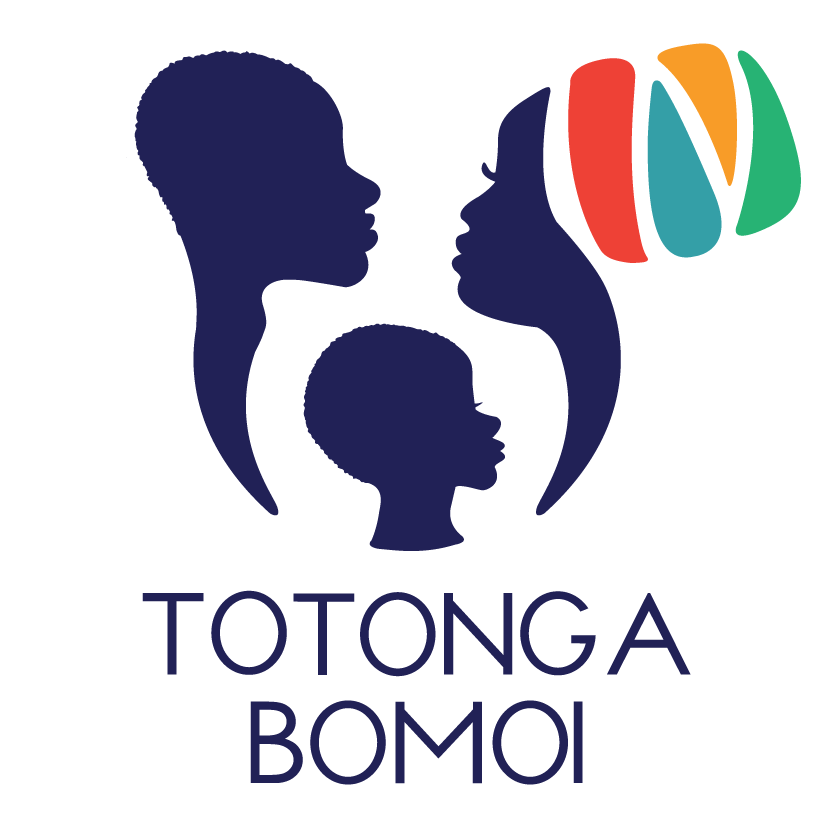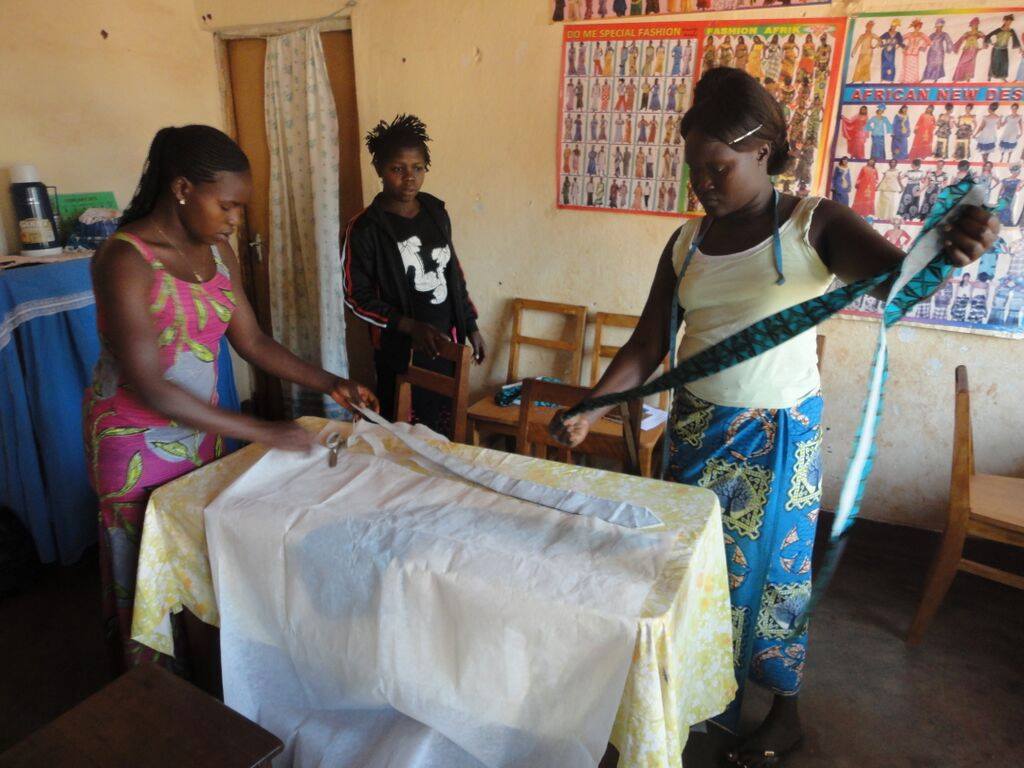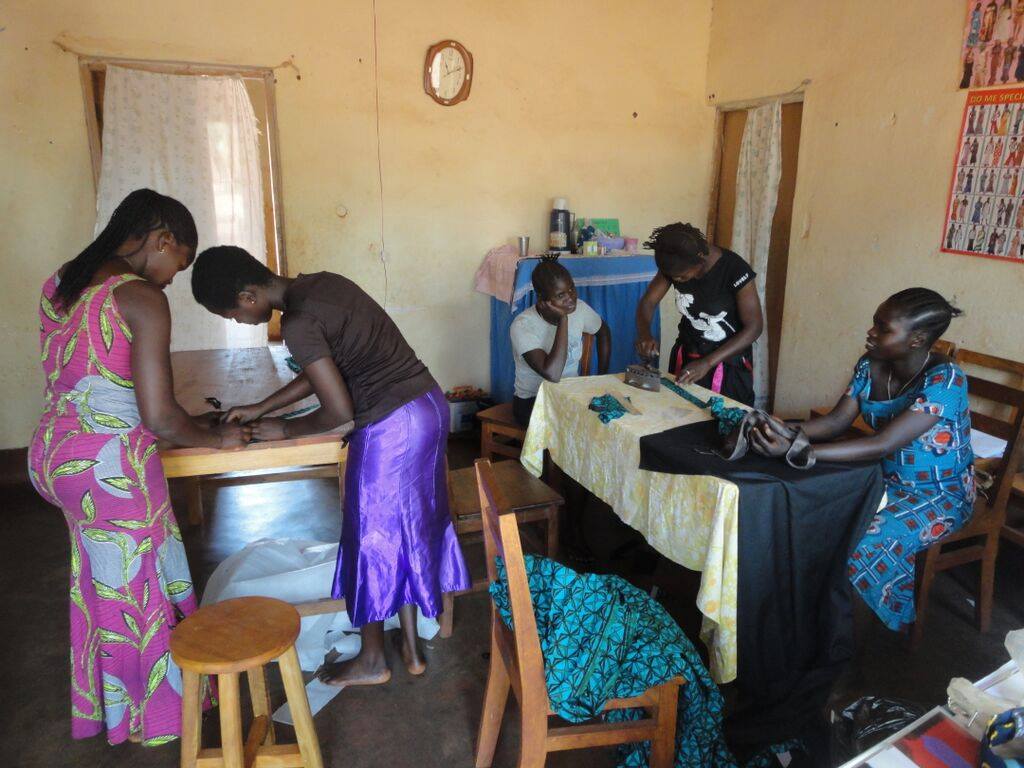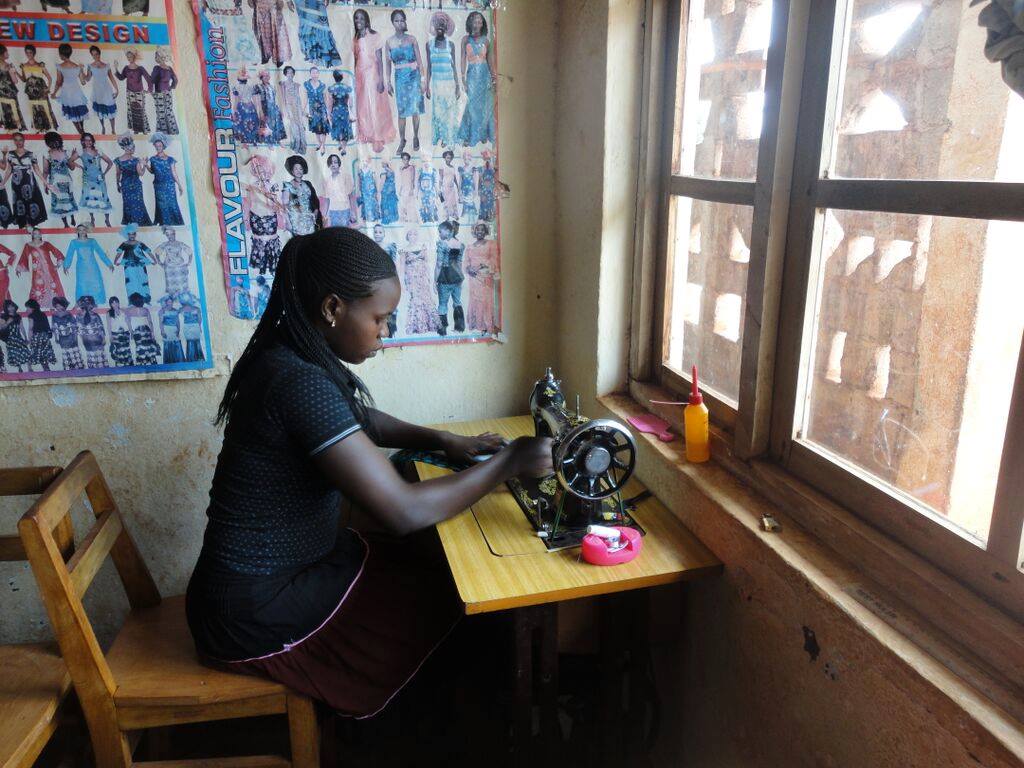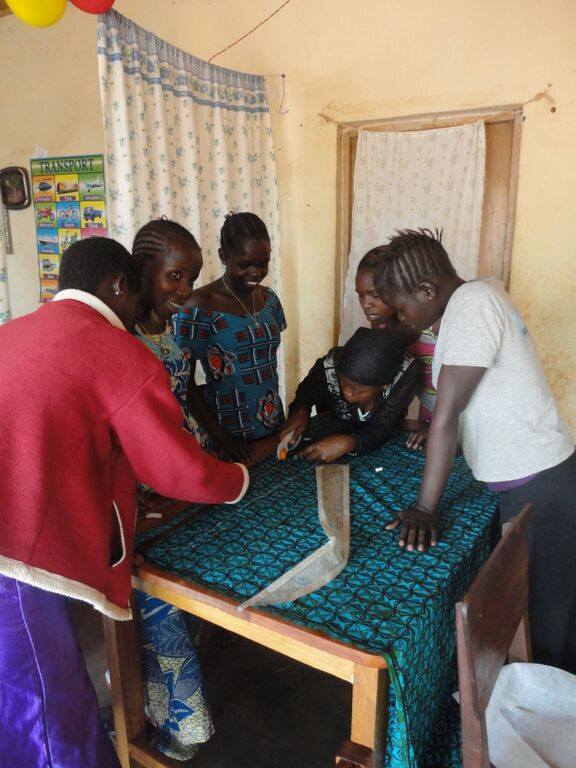Dieu Beni was a curious young twelve-year-old when we first met. She was sent to live within our volunteer compound, which was near her school. Dieu Beni's father is an English teacher. She picked up the language at home and with a little encouragement would often practice with me during the day.
Dieu Beni watched volunteers come and go from our projects in the village. She peered in through our windows while we prepared evening meals and we would often find her eavesdropping on our daily conversations. She was also very helpful, especially with new volunteers who didn't know how to burn trash, cut firewood, or prepare chicken.
In February, Dieu Beni came up to me and said that one day she was going to become a cooperative member of Totonga Bomoi. I smiled and told her that she had to study hard in school and complete her sewing studies, but inside I was completely filled with joy that this young girl, whom we often referred to as notre petit espion (our little spy), would one day become such an intelligent and determined young woman.
Dieu Beni is like so many others in the village who, after years of walking miles to school and studying by candlelight, are left to a life of inescapable poverty. Malnourishment and disease take so many lives that our families in Congo live with constant fear of loss and unpredictability.
By creating opportunities for our artisans to increase their monthly income and build community, we can strengthen families and communities across Congo.
